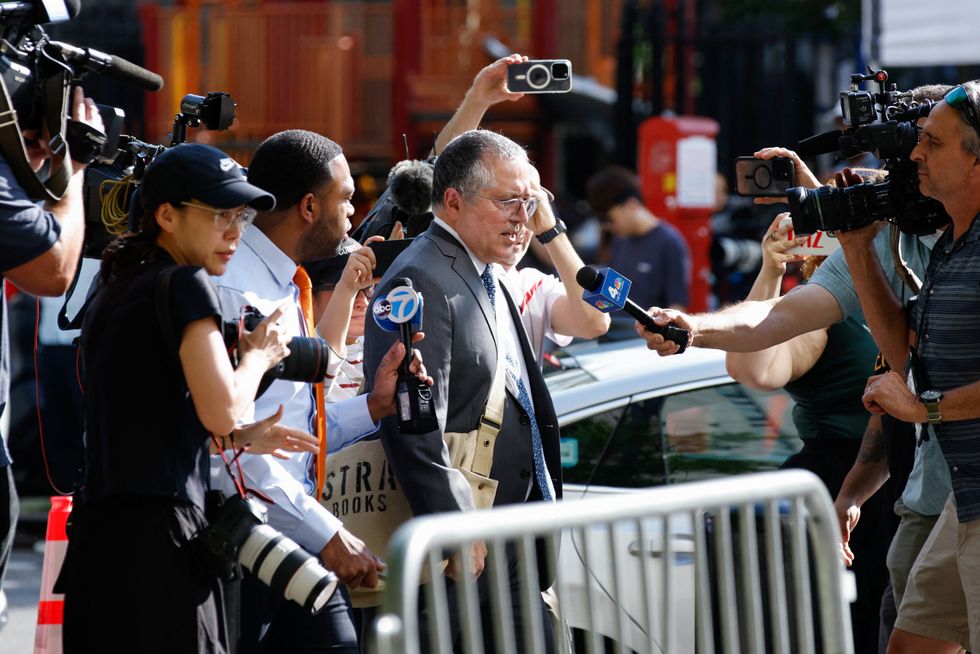SEVEN years after the Grenfell Tower fire, Shah Aghlani vividly recalls the late-night call from his aunt, who was trapped with his disabled mother in the burning 23-storey social housing block in west London.
Both women, in their late 50s and 60s, died in the fire along with 70 others. The Grenfell Tower fire, Britain’s deadliest residential blaze since World War Two, is the subject of an inquiry set to release its final report on Wednesday.
The fire's rapid spread was attributed to flammable cladding, and the sight of Grenfell Tower engulfed in flames in one of London’s wealthiest areas in June 2017 highlighted the deep inequalities in Britain.
Since the tragedy, survivors and victims’ families have campaigned to have similar cladding removed from buildings across Britain and Europe, where fires have occurred, including one in Valencia, Spain, earlier this year.
While focusing on this cause, they have also faced frustration over the lack of justice, with the inquiry delaying criminal proceedings. In May, police announced that any charges would not be disclosed until late 2026, with trials possibly beginning in 2027, a decade after the fire.
"It’s very painful for us, who lost a loved one, to see their death going in vain. It actually stops us from coming to a closure," Aghlani, 55, said, standing near a mural by the tower bearing the message: "truth will not be hidden."
The report expected on Wednesday is likely to address the choice of cladding materials used during the tower’s 2016 refurbishment by the council of Kensington & Chelsea, where the building was located. Witnesses included representatives from the architects, contractors, and sub-contractors involved in the refurbishment, as well as the makers and sellers of the cladding.
The government has stated that the inquiry will uncover the truth and provide justice for the community.
The fire led to widespread outrage in Britain, resulting in a ban on the highly flammable aluminium composite material (ACM) cladding. The former Conservative government initiated efforts to remove and replace ACM panels, which use polyethylene in their core, but progress has been slow.
As of July 2024, 4,630 buildings 11 metres or higher still had unsafe cladding, with remediation work yet to begin on half of them, according to government data.
Following a recent fire in a multi-storey building in east London, Deputy Prime Minister Angela Rayner said the government needed to accelerate its efforts.
Guillermo Rein, a fire science professor at Imperial College London, emphasised the importance of learning from Grenfell, noting that the UK is the only country that has identified buildings using ACM cladding, while others have not taken action.
The Grenfell Next of Kin group has called for a global ban on unsafe cladding after the fire in Valencia, which killed 10 people. Rein also suggested that criminal prosecutions could serve as a warning to the construction industry.
Kimia Zabihyan, from the Grenfell Next of Kin group, acknowledged that the inquiry would provide valuable information but argued that it had delayed justice. "It actually got in the way of criminal prosecution," she said, noting that while an inquiry looks into the facts and causes of an incident and often makes recommendations, it is not a criminal court.
Aghlani expressed fatigue in his pursuit of justice for his mother and aunt but still hoped that authorities would not "water down the prosecution" when the time comes.
Local resident Marcia Robinson, who runs Hope Gardens, a community space that serves as a memorial site for Grenfell’s victims, echoed these concerns: "The first thing everyone cried out for still remains: accountability."
She added that more than just seeing suspects in court, she wanted assurance that "we are now in an area where that will never happen again."
(With inputs from Reuters)







 Apsana Begum
Apsana Begum








 Diddy trial jury raises alarm over juror and demands key witness testimoniesGetty Images
Diddy trial jury raises alarm over juror and demands key witness testimoniesGetty Images  Marc Agnifilo, attorney for Sean "Diddy" Combs, arrives at federal courtGetty Images
Marc Agnifilo, attorney for Sean "Diddy" Combs, arrives at federal courtGetty Images  Sean 'Puffy' Combs arrives at Manhattan Supreme Court in 2001Getty Images
Sean 'Puffy' Combs arrives at Manhattan Supreme Court in 2001Getty Images

